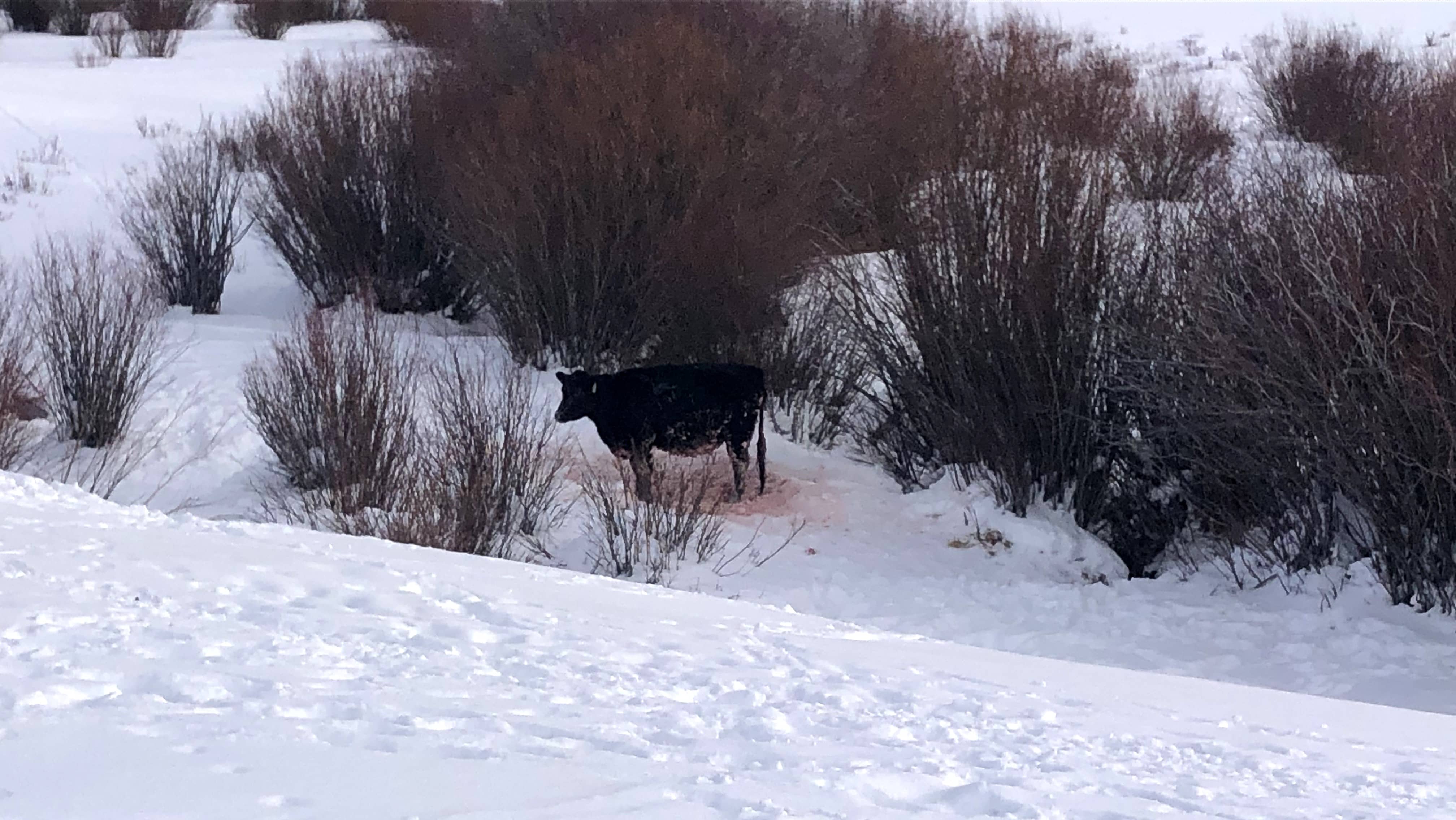
WARNING: Some pictures are graphic and disturbing.
By Shannon Lukens at Shannon@SteamboatRadio.com.
Click here to hear the full interview with rancher Don Gittleson, from Steamboat Radio. (Recorded earlier Tuesday.)
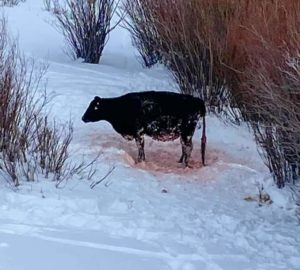
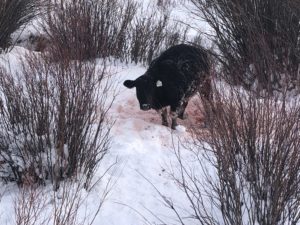
A pack of wolves has attacked two more head of cattle in Jackson County. It happened on a 10,000+ acre ranch today leased by Don Gittleson. That’s also where another heifer was killed by wolves in December. Gittleson thinks the 2-year-old heifer will be OK when treated by the vet, but he isn’t sure about the other young cow who was injured the most.
The vet is on the way to the ranch. **UPDATE AT 5:40 p.m. One of the cows was euthanized.
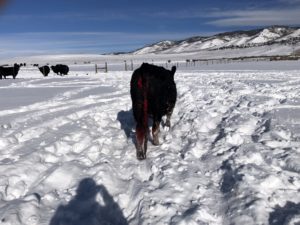
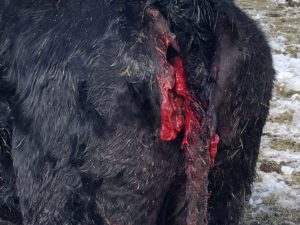
Gittleson says two Colorado Parks and Wildlife officers came out to the ranch this morning. He says they will now have to go and warn the neighbors of the most recent wolf attack. (See statement from Colorado Parks and Wildlife below.)
Gittleson says everything he has done is just a temporary fix, which works for only a few weeks before the wolves come back. He put some large cows in with his heifers but he says that didn’t work.
Gittleson also says there was an elk that was attacked by the wolves but it left. He says part of the investigation will be whether the wolves chased the elk into the area and then decided to go after the cows. Gittleson also has to repair his fence where the wolves ran the cows through the fence.
Another wolf attack killed a working ranch dog named Buster earlier this month in Jackson County.


Here is the full press release from Colorado Parks and Wildlife this evening.
CPW confirms wolf depredation incident involving two domestic cows in North Park
1/18/22
WALDEN, Colo. – After an initial investigation, CPW wildlife officers have confirmed a wolf depredation incident has occurred on two domestic cows in North Park. One of the cows has been subsequently euthanized due to injuries incurred.
Just after 7:30 a.m. on Tuesday, Jan. 18, CPW District Wildlife Managers (DWMs) received a report of six wolves present on a ranch in Jackson County.
DWMs responded and performed a field investigation after discovering two injured cows on the property.
The results of this investigation indicated wolf tracks and scat in the immediate vicinity of the injured cows and wounds on both cows consistent with wolf depredation.
The incident occurred on the same ranch as the previous wolf depredation incident on Dec. 19.
Last week the CPW Commission passed regulations on hazing for wolves that have naturally migrated into the state, including the pack in Jackson County. CPW will be working closely with this individual ranch as well as other producers to provide resources to minimize the likelihood of conflict or depredation as it works to create a statewide wolf restoration and management program as directed under Proposition 114.
Because of the broad awareness and public attention on Proposition 114 and the mandated wolf reintroduction efforts in the state, it’s worth underscoring that this incident is not related to or a result of wolf reintroduction efforts in Colorado. It’s also worth noting that the state has an existing depredation reimbursement fund for predation by other species that can be used for wolf depredation, and depredation reimbursement options specifically related to wolf reintroduction are currently being evaluated by both the Technical Working Group and Stakeholder Advisory Group working to develop reintroduction plan recommendations. More information on those discussions can be found in the meeting summaries posted here, and additional information on this immediate incident can be found here.
Depredation compensation is required by statute, and the final Colorado compensation plan will be part of the overall Gray Wolf planning process. Recent Stakeholder Advisory Group and Technical Working Group meetings have focused on the topic of depredation compensation; meeting summaries are available at https://www.wolfengagementco.org/advisory-groups.
Depredation compensation will not utilize revenues generated by the sale of hunting or fishing license fees. Compensation will occur via the General Fund, the Species Conservation Trust Fund, the Colorado Nongame Conservation and Wildlife Restoration Cash Funds, or other sources of funding for non-game species.
Gray Wolves remain a state endangered species, and wolves may not be taken for any reason other than self-defense. Illegal take of a wolf may result in a combination of penalties, including fines of up to $100,000, a year of jail time, and a lifetime loss of hunting license privileges.